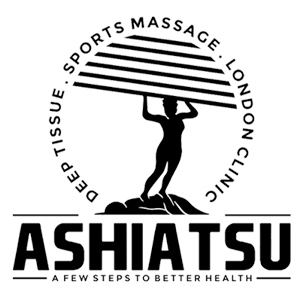A sports massage uses hands-on techniques to help the musculoskeletal system’s muscles, tendons, and ligaments work better. Sports massage has been shown to increase blood flow, eliminate waste products like lactic acid that build up during high-intensity exercise, and relax and loosen tight muscles. Also, it can help the body calm down, making it less likely that muscles will get hurt, and it helps them heal faster.
Inter-workout sports massage can help people prone to overuse injuries because it gives the muscles time to relax and heal before the next workout. Sports massage from Sports Massage London not only benefits the body but can also help athletes in mentally preparing for their activity or competition.
Who can get something out of a sports massage?
Sports massage can be helpful for athletes during preparation, training, competition, and recovery, though the focus will change at each stage. Based on the patient’s needs and the amount of time spent participating in their sport, a physiotherapist might develop a massage therapy routine.

It can prevent harm from coming to the person by focusing on any area of their body that is a possible source of the difficulty. It can work on specific muscle groups to keep or improve flexibility and range of motion. Your physiotherapist may also teach you stretches and exercises to help you keep the benefits of each treatment.
Massage for a certain competition or event:
Massage is used before and after an event to reach certain goals. A participant’s warm-up can include a massage to improve circulation, ease physical tension, and help the mind prepare for the event. Massage is used after an event to help the body recover faster by eliminating muscle cramps and metabolic waste. A competitor who gets a good massage before and after an event, can get back to training and competition faster and is less likely to get hurt.
If you hurt yourself playing a sport and want to get back to it, a sports massage from Sports Massage London can help you heal faster and feel less pain. Sports massage is a terrific approach to speed up recovery and prevent injuries, and the techniques utilized in it can help with both immediate and long-term issues.
A sports massage uses techniques from different types of massage to create a unique process that manipulates soft tissue to prevent injury, relieve muscle or tendon pain, or release any stress that the soft tissue may carry. Sports massages from Sports Massage London can be very helpful for athletes, people who go to the gym, or even people who work 9 to 5. Injuries, aches, and pains vary from person to person; thus, everyone’s experience will be unique.

People choose sports massage for many different reasons, and the experience is also different. Even people who just had surgery would rather get treatment. People with migraines and tension headaches often get sports massages to help with their pain. They may have problems that don’t go away, like tight calves from running or stiff shoulders from sitting at a desk, or they may have just hurt themselves in a sprain or accident.
In contrast to a full-body massage, the therapist will probably focus on just a few body parts after examining the whole body first. During a client exam, you will do several exercises that will let your therapist check your range of motion through passive, resistive, and dynamic movements, posture and symmetry, flexibility and mobility of your muscles and joints, and flexibility.
Be careful, though, because once the massage starts, things will get interesting. The therapist is good at figuring out how much pain you can handle and working below it, and she can also teach breathing techniques to help you deal with pain.
Sports massage uses myofascial release techniques to stretch the fascia, a network of elastin and collagen that wraps around organs, bones, muscles, and tendons. During a sports massage from Sports Massage London, the fascia and the tissues around it will relax because of the manipulation and stretching, restoring flexibility and movement. If you have a bad posture or get hurt, the fascia can harden and lose its elasticity, making you less flexible.


